Search Results
Showing results 901 to 920 of 1055

Super Soaking Materials
Source Institutions
In this activity, learners will test cups full of potting soil, sand, and sphagnum moss to see which earth material is able to soak up the most water.

Hot Stuff!: Investigation #3
Learners test two jars of ice water, one covered and one open, for changes in temperature. After placing the jars in the sun, learners discover that the covered jar cools down more slowly.
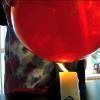
Do Sweat It!
Source Institutions
In this activity, learners explore why humans sweat. Learners compare the effects of heat on a balloon filled with air and a balloon filled water.

Challenge: Microgravity
Source Institutions
In this activity about the circulatory system and space travel (on page 38 of the PDF), learners use water balloons to simulate the effects of gravity and microgravity on fluid distribution in the bod

Stained Glass Glue
Source Institutions
In this activity on page 6 of the PDF, learners use glue instead of glass to create artwork that can be hung in a window.

Hoopster: An Airplane Made from Paper Hoops
Source Institutions
This activity provides instructions for making an aircraft that can really fly using a straw and paper hoops!
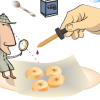
Iodine Investigators!
Source Institutions
In this activity on page 7 of the PDF (Chemistry—It’s Elemental), learners use iodine to identify foods that contain starch.

Exploring A Hydrogel
Source Institutions
In this activity on page 10 of the PDF, learners develop an experiment to answer the following question: "How much water can the hydrogel in a baby diaper hold?" Use this activity to explore polymers,
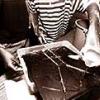
Squeeze the Stream
Source Institutions
In this activity related to flight, learners build a tiny stream channel to investigate how fluids (air and water) change speed as they flow between and around objects.
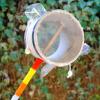
Torsion Drum
Source Institutions
In this activity, learners build a musical drum using a cardboard tube, plastic wrap, and beads.

Seeing Is Believing
Source Institutions
This activity is designed to accompany the PBS documentary about African-American chemist "Percy Julian: Forgotten Genius." Learners look through two cups with small holes in them to simulate what it'
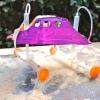
Hydraulic Car
Source Institutions
In this activity, learners build cars using syringes and water-powered hydraulics. Learners construct the car frame out of cardboard and set up a hydraulic system to raise and lower the car.
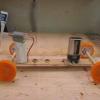
Propeller-Powered Car
Source Institutions
In this activity, learners construct cars that are powered by hand-made, electric propellers.
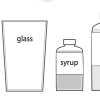
Density Stackers
Source Institutions
In this activity, learners investigate density as they discover how liquids separate to form density layers. Learners discover what happens when they add syrup, cooking oil, and water to a jar.

Planetary Rescue Squad
Source Institutions
This is an online Flash game where learners can experiment with ballistics and how to compensate for the varying levels of gravity found on the planets of our Solar System.
Create a Mangrove Tree
Source Institutions
In this group activity, learners will explore the characteristics, functions and uniqueness of the mangrove tree.
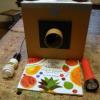
Cardboard Opaque Projector
Source Institutions
In this activity, learners construct a projector out of cardboard to view their favorite images (such as storybook illustrations) on the wall.

Super Soaker
Source Institutions
In this activity (page 1 of the PDF under SciGirls Activity: Bogs), learners will test cups full of potting soil, sand, and sphagnum moss to see which earth material is able to soak up the most water.
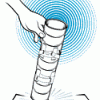
CANdemonium: Make a Drum Out of Recycled Cans
Source Institutions
With three cans and some tape, make a drum that you bonk down on any surface to produce a variety of sounds. This activity also teaches you about pitch, vibration, and frequency.
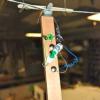
Cable Car
Source Institutions
In this activity, learners string a line across the room and build cable cars that can move from on end to the other.
